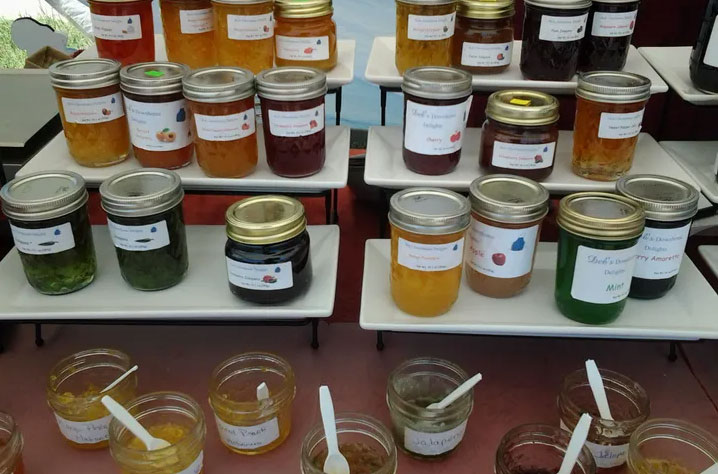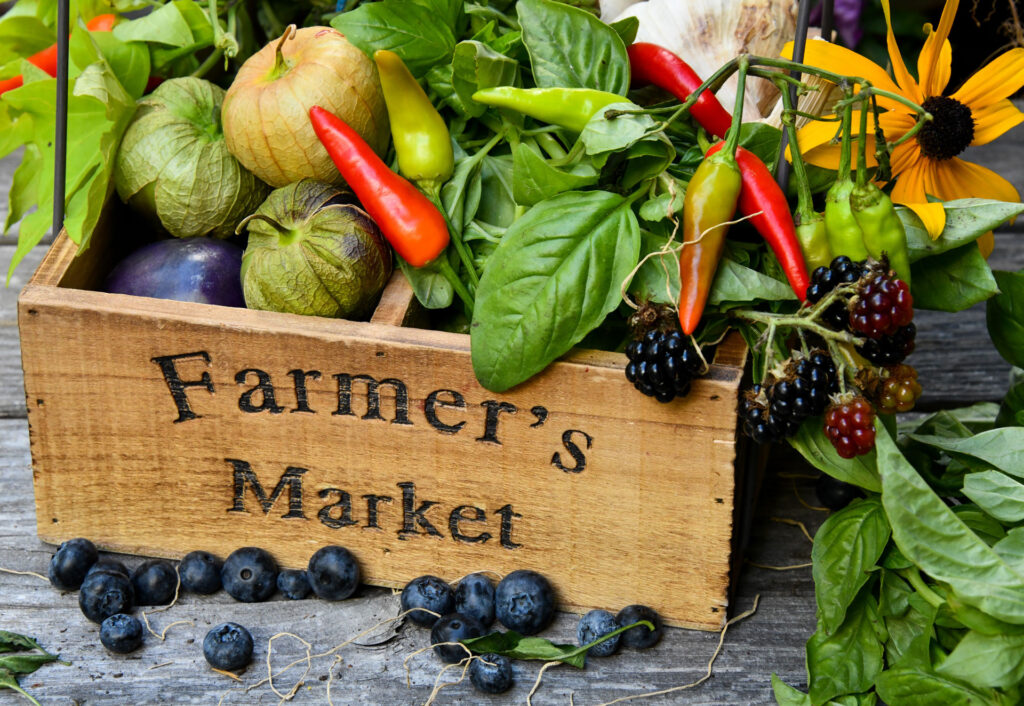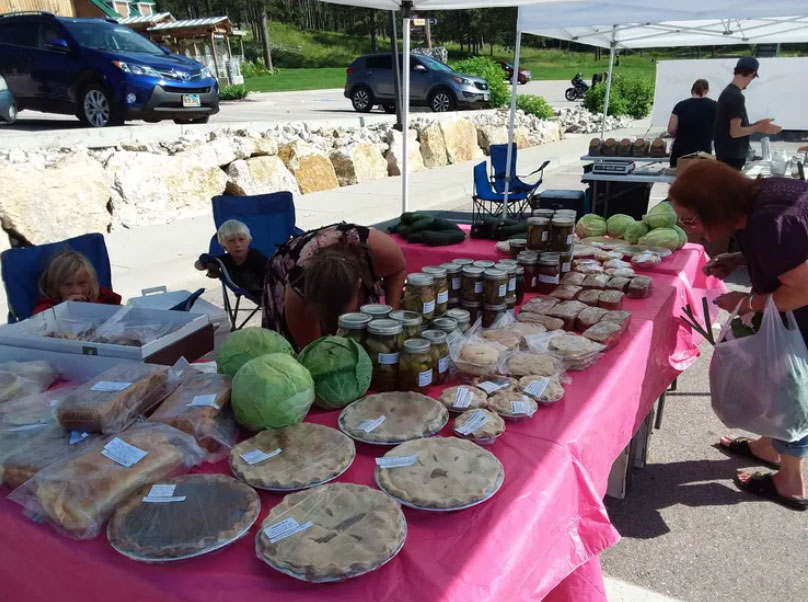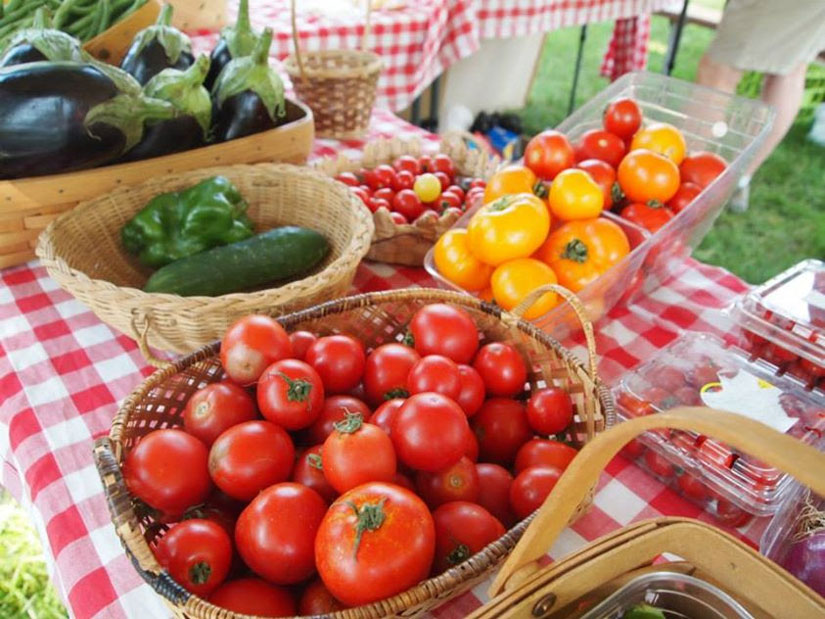Imagine the aroma of sizzling steaks on the grill or the scent of fresh flowers brightening your dining room. By shopping at the Black Hills Farmers Market, you can bring these delightful experiences into your home.
The market is a gathering of local producers, agriculturists, and artisans offering fresh food and handcrafted products directly to consumers. It fosters personal connections between farmers, shoppers, and the community.
Benefits of Shopping Local
Support the Local Economy
Purchasing from local vendors keeps money circulating within the community, preserving and creating local jobs. At farmers markets, producers often receive a higher percentage of the sale price compared to traditional retail channels.
Fresh and Local Products
More than 85% of farmers market vendors travel fewer than 50 miles to sell at a farmers market. Some markets even require that all produce comes from within a specified mileage limit.
Superior Quality
Local, homegrown produce often surpasses grocery store offerings in quality and taste, providing a fair price for both consumers and producers.
Nutritional Value
Freshly harvested fruits and vegetables retain more nutrients and offer vibrant colors and flavors that are hard to find in store-bought produce.
Community Engagement
Shopping at the farmers market is a unique experience where you can meet the people who grow your food, enjoy the outdoors, and connect with neighbors.








Come Prepared
Payment Methods
While many vendors accept credit and debit cards, it’s advisable to bring cash, as some may not have card readers.
Shopping Bags
Bring reusable canvas bags from home, as most vendors do not provide shopping bags.
Family-Friendly
If you have young children, consider bringing a wagon to carry both your purchases and your kids as you browse the market.
Each farmers market across the Black Hills offers something unique, but wherever you go, you can typically find the following produce and products across the board. Throughout all seasons, you can browse a wide variety of agricultural and artisan goods. From jams, jellies, syrups, and salsas to selections of baked goods, meats, dairy and even personal care products and arts and crafts, there is something for everyone in a year round market.
Monthly selections will vary based on what grows in your area. Here in the Black Hills, you can generally expect the following each month:
May:
Lettuce, spinach, greens, microgreens, asparagus, mushrooms, rhubarb, tomatoes, cucumbers, green beans, live plants, and cut flowers.
June:
Kohlrabi, strawberries, lettuce, Swiss chard, kale, garlic scapes, microgreens, asparagus, radishes, mushrooms, rhubarb, tomatoes, cucumbers, carrots, green onions, chives, live plants, and cut flowers.
July:
Peas, onions, broccoli, zucchini, beans, cherries, apricots, blueberries, peaches, kohlrabi, strawberries, lettuce, Swiss chard, kale, garlic scapes, microgreens, asparagus, radishes, mushrooms, rhubarb, tomatoes, cucumbers, carrots, green onions, chives, chokecherries, live plants, and cut flowers.
August:
Sweet corn, onions, broccoli, cauliflower, zucchini, beans, apricots, peaches, kohlrabi, lettuce, Swiss chard, kale, garlic, microgreens, mushrooms, tomatoes, cucumbers, carrots, turnips, potatoes, cabbage, green onions, peppers, herbs, melons, live plants, and cut flowers.
September:
Sweet corn, apples, melons, onions, broccoli, cauliflower, zucchini, beans, apricots, peaches, lettuce, Swiss chard, kale, garlic, microgreens, mushrooms, tomatoes, cucumbers, carrots, turnips, potatoes, cabbage, green onions, peppers, herbs, live plants, and cut flowers.
October:
Apples, pears, sweet potatoes, Jerusalem artichokes, aronia berries, gooseberries, black currants, cranberries, nuts, melons, onions, broccoli, cauliflower, zucchini, plums, lettuce, Swiss chard, kale, garlic, mushrooms, tomatoes, cucumbers, carrots, turnips, rutabagas, potatoes, beets, cabbage, green onions, peppers, winter squash, pumpkins, kohlrabi, and live plants.
November:
Apples, pumpkins, winter squash, potatoes, cranberries, aronia berries, tomatoes, cucumbers, and mushrooms.
December:
Tomatoes, winter squash, aronia berries, cucumbers, lettuce, mushrooms.
January:
Lettuce, aronia berries, mushrooms.
Please note: This is a general guide. Produce will vary market to market.
